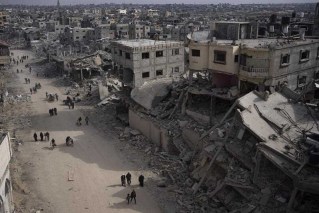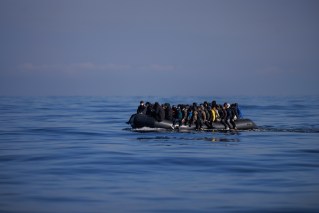Rwandans mysteriously disappear
Rwandan opposition politician Damascene Munyeshyaka, who went missing on June 27, is just one in a growing list of people who have not been heard of over the past few months and who rights activists believe have been forcibly disappeared.
Munyeshyaka, the organisational secretary of the Democratic Green Party, was at a meeting in the eastern district of Bugesera, when he received a phone call.
The caller said he had an urgent message to deliver, according to the party. Munyeshyaka didn’t know the caller but left to meet him. He has not been seen since.
Munyeshyaka’s daughter, Nice Mahoro, says her father had been persecuted but declined to give details while a police investigation is ongoing.
His family wonders if his disappearance is connected to his membership in the party, which is described by some observers as the only one in Rwanda that is not under government control.
Dozens of Rwandans have disappeared since March, says Rwanda investigator Carina Tertsakian from Human Rights Watch, which suspects the army and police of sequestering people critical of the regime.
The government denies such allegations and accuses the New York-based rights group of a “politically motivated propaganda campaign” against an administration that its supporters credit with stabilising the country following the 1994 genocide of about 800,000 Tutsis and moderate Hutus by Hutu extremists.
Many fear Munyeshyaka may have suffered a fate similar to that of Andre Kagwa Rwisereka, then vice president of the Democratic Green Party, whose body was found beheaded in July 2010.
That came just weeks after journalist Jean-Leonard Rugambage, who worked for a newspaper critical of the government, was shot dead.
More recent disappearances include that of Gustave Makonene, a Transparency International researcher reportedly looking into alleged police corruption, who was found strangled in July 2013.
In August, the chairwoman of Transparency International’s Rwanda branch, Marie Immaculee Ingabire, left her office just before a gunman tried to force his way in.
“He obviously wanted to harm me,” Ingabire says.
Arrests have been made in some cases, but none has been entirely clarified.
Not all of those who disappear are politicians or activists, Tertsakian said from London. Many are ordinary people who may have aroused suspicions by travelling to neighbouring Democratic Republic of Congo, where the Democratic Forces for the Liberation of Rwanda (FDLR) – a Hutu rebel group including genocide perpetrators – plots attacks to be carried out in Rwanda.
Most of those who disappear are not found dead but resurface in court to be tried for security-related offences, Tertsakian said.
Many are found guilty, the activist says, expressing concern that confessions may have been obtained under torture and that some of the accused were not assisted by lawyers.
The Tutsi-dominated Rwandan Patriotic Front (RPF) came to power after the genocide, which was preceded by a four-year civil war based partly on centuries-old hostilities between the Hutus – who now make up about 85 per cent of the 11.5-million population – and the Tutsis, who make up 15 per cent.
President Paul Kagame is credited with strengthening the genocide-ravaged economy, with a growth rate of up to 7.5 per cent expected by the African Development Bank in 2014-15.
The government has provided free primary education, extended health care and improved road infrastructure.
Donors feeling guilty over not having prevented the genocide pour more than a billion dollars annually into Rwanda, which gets more than 40 per cent of its budget from aid, according to figures given by Reyntjens.
The Tutsi-controlled administration has maintained tight control over public opinion since it took power in 1994, the professor says, because it is aware of the difficulties of an ethnic minority ruling over the majority.
Reyntjens and human rights activists say the regime uses anti-genocide legislation banning incitation to ethnic hatred to silence critics.








